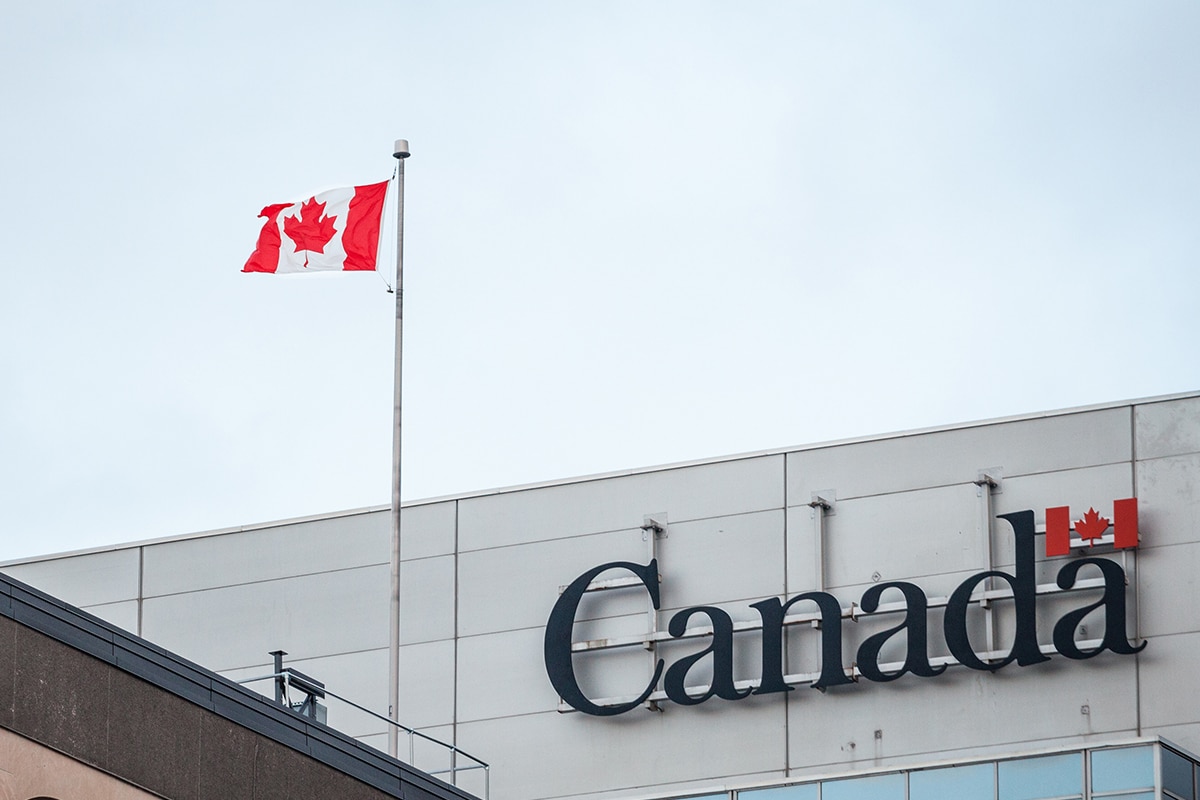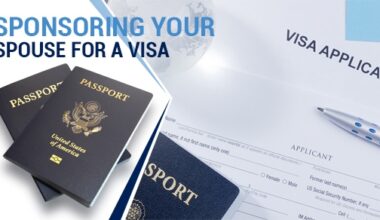Immigration, Refugees and Citizenship Canada (IRCC) family class sponsorship applications often span several months or years during processing. During this extended timeframe, sponsors and applicants may experience significant life changes that require official notification to IRCC regarding their family class sponsorship. Understanding when and how to report these changes is crucial for maintaining application integrity and ensuring successful processing of family class sponsorship applications.
Understanding Family Class Immigration
In 2025, nearly 24% of overall permanent resident admissions will be allocated to the family class, reflecting Canada’s continued commitment to family reunification. However, IRCC has cut landings allocations for family class sponsorship immigration in 2025 as part of overall immigration level adjustments.
The significance of family class sponsorship is evident as it impacts many applicants each year, ensuring that families remain united. This process emphasizes the importance of following guidelines set by IRCC for family class sponsorship.
The family class encompasses several categories of relationships eligible for sponsorship:
The family class sponsorship process is essential in allowing Canadians to bring their loved ones into the country. It is vital to understand all categories under family class sponsorship to ensure compliance with IRCC regulations.
- Spouse, common-law partner, or conjugal partner
- Dependent children (including adopted children)
- Parents and grandparents
- Other eligible relatives in specific circumstances
Each category under family class sponsorship has distinct requirements for reporting changes, which this guide addresses in detail to assist sponsors and applicants in their family class sponsorship journey.
Key Principles for Reporting Changes
Before exploring specific scenarios, it’s important to understand IRCC’s fundamental expectations:
- Mandatory Disclosure: All material changes must be reported promptly
- Application Integrity: Changes can affect eligibility and processing
- Timing Matters: Some changes require immediate reporting, while others have specific deadlines
- Documentation Required: All changes must be supported by appropriate evidence
Adding New Family Members to Applications
Adding a Dependent Child
When sponsors need to add a dependent child to an existing application, the process varies based on the child’s relationship to the sponsor.
Biological or Adopted Dependent Children of the Sponsor:
- No new Minimum Necessary Income (MNI) assessment required for the sponsor
- Additional processing fees must be paid for the new applicant
- The child must complete medical examinations
- Security and background checks are required
- Processing times may be extended
Required Documentation:
- Birth certificate or adoption papers
- Payment receipt for processing fees
- Medical examination results
- Police certificates (if applicable based on age and residence history)
Adding a Newborn Child
Special provisions exist for children born after a permanent resident visa has been issued but before the applicant becomes a Canadian permanent resident.
Process for Newborn Addition:
- Pay applicable processing fees for the newborn
- Arrange medical examination for the child
- Submit birth certificate and other required documents
- Update family composition forms
The newborn can be added to the sponsorship application without affecting the primary applicant’s visa validity, provided all requirements are met promptly.
Changes to Principal Applicant
Changing the principal applicant on a family class application is only permitted in specific circumstances and for certain relationship categories.
In family class sponsorship, changing the principal applicant can significantly affect the application outcome. Understanding the rules surrounding these changes is paramount for a successful family class sponsorship.
Eligible Scenarios
Permitted Changes:
- Parent or grandparent sponsorship applications
- Spouse or common-law partner applications
- Death of the original principal applicant
Requirements for Change in Family Class Sponsorship:
- New principal applicant must be a family class member in their own right
- Must maintain relationship to sponsor (parent, grandparent, spouse, or partner)
- Step-parents and step-grandparents may be eligible through humanitarian and compassionate considerations
Required Documentation and Process
The documentation required for family class sponsorship changes includes comprehensive records that demonstrate eligibility under family class sponsorship criteria.
When IRCC approves a principal applicant change, sponsors must submit updated versions of:
| Form | Description | Purpose |
|---|---|---|
| IMM1344 | Application to Sponsor, Sponsorship Agreement and Undertaking | Updates sponsor information and commitments |
| IMM0008 | Generic Application Form for Canada | Reflects new principal applicant details |
Important Note: No additional processing fees are required for principal applicant changes approved by IRCC.
Changes in Sponsor Circumstances
Maintaining a stable financial situation is crucial when undertaking family class sponsorship. Any fluctuations can impact your application.
Financial Situation Changes
Canadian citizens and permanent residents looking to sponsor relatives under the Parents and Grandparents Program (PGP) must have made a minimum of $47,549 in 2024, representing a significant increase from previous years. When a sponsor’s financial circumstances change, IRCC may reassess their eligibility.
Triggers for Reassessment:
- Significant income reduction
- Job loss or career change
- Addition of new financial dependents
- Change in family size
Process for Financial Reassessment:
- IRCC Review: IRCC may pause permanent resident visa issuance pending reassessment
- Documentation Period: Sponsors must provide 12 months of financial evidence preceding the reassessment notification
- Evidence Submission: Additional documents proving continued financial capacity
- Decision: IRCC determines if sponsorship undertaking remains valid
Income Requirements by Category
| Sponsorship Category | MNI Requirement | Assessment Period |
|---|---|---|
| Spouse/Common-law Partner | None | N/A |
| Dependent Children | None | N/A |
| Parents and Grandparents | $47,549 minimum (2024) | 3 consecutive tax years |
| Other Eligible Relatives | Varies | Case-specific |
Relationship Status Changes
Marriage and Common-law Transitions
When sponsors and applicants change their relationship status during processing, they may transition between family class categories. Update your contact information or tell us about changes to your family situation, for example, marriage, birth, divorce or death is a mandatory requirement.
Common Status Changes:
- Common-law partners getting married
- Separation or divorce
- New common-law relationships
- Death of sponsor or applicant
Documentation Requirements
For Marriage:
- Marriage certificate
- Updated IMM0008 forms
- Relationship evidence demonstrating genuineness
For Separation/Divorce:
- Legal separation documents
- Divorce decree (when finalized)
- Updated family composition information
Processing Time Implications
Understanding processing times for family class sponsorship can help sponsors prepare for potential delays that may arise.
Understanding current processing times helps sponsors plan for potential changes:
Current Processing Times (2025)
| Application Type | Standard Processing | Quebec-Destined |
|---|---|---|
| Spouse/Partner | 12-16 months | 12-16 months |
| Dependent Children | 12-16 months | 12-16 months |
| Parents/Grandparents | approximately 24 months | 48 months |
Note: Processing times for Quebec-destined applicants are 48 months due to the province’s more limited family class admission targets.
Communication Procedures
Official Notification Methods
IRCC Web Form: The primary method for reporting changes is through IRCC’s official web form system. When submitting notifications, include:
- Full name and date of birth
- Application number (if available)
- UCI number (if known)
- Detailed description of changes
- Supporting documentation
Required Information for All Notifications:
- Sponsor’s complete identification details
- Application reference numbers
- Clear description of changes
- Timeline of changes
- Supporting documents
Response Expectations
IRCC typically acknowledges receipt of change notifications within 2-4 weeks. Complex changes may require additional processing time and could extend overall application processing periods.
Financial Obligations and Undertakings
Undertaking Period Responsibilities
Sponsors remain financially responsible for sponsored individuals throughout the undertaking period, regardless of relationship changes or personal circumstances.
Undertaking Periods by Category:
- Spouse/Partner: 3 years from permanent residence date
- Dependent Children: 10 years or until age 25 (whichever comes first)
- Parents/Grandparents: 20 years from permanent residence date
Financial Support Requirements
The undertaking represents a legal commitment to provide financial support and prevent sponsored individuals from requiring social assistance. This obligation persists even if:
- The relationship between sponsor and sponsored person changes
- The sponsor experiences financial difficulties
- Family circumstances change significantly
Provincial Considerations
Quebec Specificity
Quebec has distinct requirements for family class sponsorship, including:
- Separate undertaking process with the Government of Quebec
- Different income thresholds
- Extended processing times
- Provincial assessment requirements
Quebec Undertaking Process:
- Receive IRCC sponsorship approval
- Submit undertaking application to Quebec
- Complete Quebec-specific assessments
- Obtain Certificate of Selection du Québec (CSQ)
Recent Policy Changes and Updates
2025 Immigration Level Adjustments
IRCC has cut landings allocations for family class sponsorship immigration in 2025, potentially affecting processing times and approval rates. Sponsors should be prepared for:
- Longer processing times
- Increased scrutiny of applications
- Stricter adherence to requirements
- Enhanced documentation standards
Technology and Processing Improvements
IRCC may use electronic methods to help process applications and make decisions, including computer analytics, automation and others, which may affect how changes are processed and communicated.
Best Practices for Managing Changes
Proactive Communication
-
- Immediate Notification: Report significant changes within 30 days
- Complete Documentation: Provide comprehensive supporting evidence
- Follow-up: Confirm receipt of change notifications
- Professional Assistance: Consider consulting immigration lawyers for complex changes
Timely communication regarding family class sponsorship is essential to avoid complications during the application process.
Documentation Management
Maintain organized records of:
- All correspondence with IRCC
- Original application documents
- Change notification submissions
- Supporting evidence for all changes
- Timeline of events and submissions
Avoiding Common Mistakes
Frequent Errors:
- Delayed reporting of changes
- Incomplete documentation
- Failure to update contact information
- Misunderstanding undertaking obligations
- Inadequate financial evidence
Conclusion
Successfully managing changes in family class immigration applications requires understanding IRCC’s specific requirements, maintaining organized documentation, and ensuring timely communication. The 2025 immigration landscape presents both challenges and opportunities for family reunification, with adjusted processing levels and enhanced technological capabilities.
Ultimately, understanding the nuances of family class sponsorship allows sponsors to effectively navigate the application process and ensure compliance with IRCC’s requirements.
Sponsors must remain vigilant about their obligations throughout the application process and beyond, recognizing that changes in circumstances don’t eliminate legal and financial commitments. By following the procedures outlined in this guide and maintaining open communication with IRCC, sponsors can navigate the complexities of family class immigration while protecting their applications’ integrity.
The key to successful family class sponsorship lies in preparation, documentation, and adherence to IRCC’s evolving requirements. As immigration policies continue to develop, staying informed about current procedures and maintaining compliance with all obligations ensures the best possible outcomes for Canadian families seeking reunification.
The successful execution of a family class sponsorship hinges on meticulous planning and adherence to guidelines.
Additional Resources
- IRCC Family Sponsorship Portal
- Application Status Tracker
- IRCC Help Centre
- Quebec Immigration Requirements
This guide reflects current IRCC policies and procedures as of July 2025. Immigration requirements and procedures may change, and applicants should always consult official IRCC sources for the most current information.
For additional support on family class sponsorship, refer to the official IRCC sources for updates on policies and procedures.


